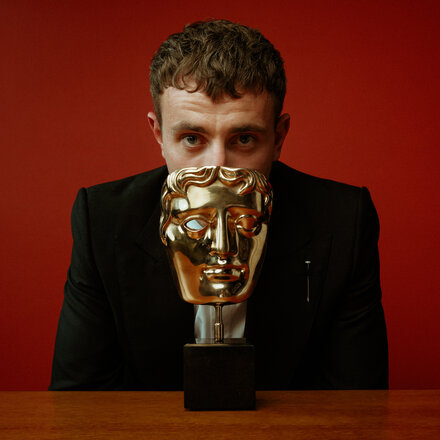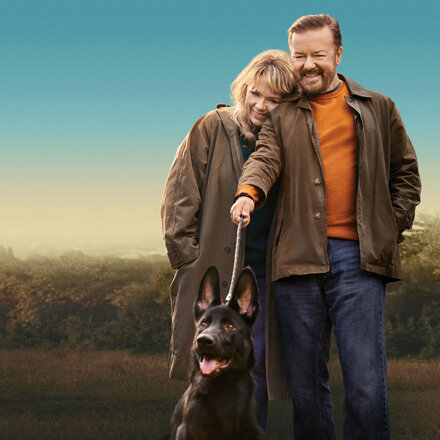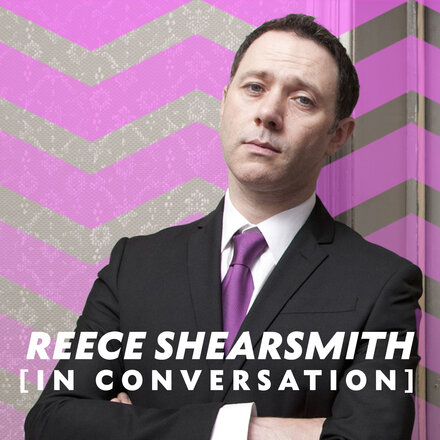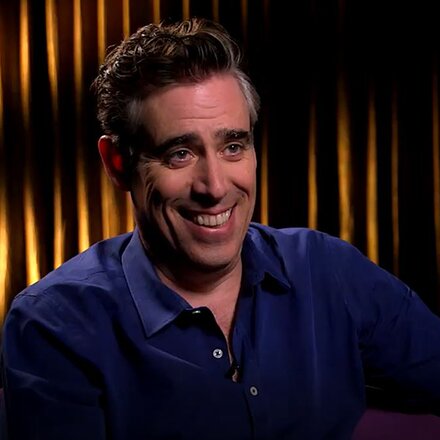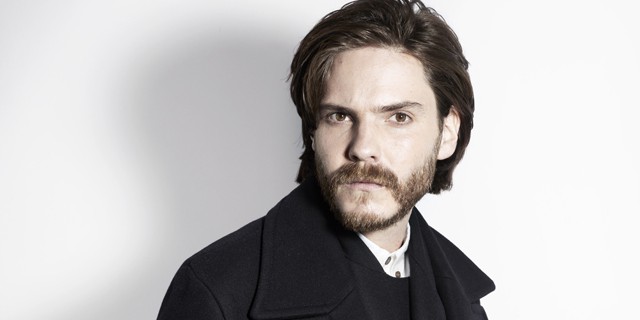
A Rush of Success: Daniel Brühl Interview
How do you portray a schizophrenic? What's dangerous about being too competitive as an actor? We talk to Rush and Good Bye Lenin! star Daniel Brühl about his career path to pole position and ask his advice for aspiring actors.
Published 17 September 2013
Words by Quentin Falk. Photograph by Rankin.
It's hardly surprising that Daniel Brühl still recalls vividly the moment he landed the biggest film role of his life. He was on a Spanish motorway and trying to pass a large lorry when his girlfriend screamed at him: "You're not a rally driver! Stay behind the truck!". At which point his phone suddenly rang and he was quietly informed that he had been selected to play world-beating former Austrian driving ace Niki Lauda in Ron Howard's Rush.
The 35-year-old Spanish-German actor, who divides his time between Berlin and Barcelona, admits that his reaction to the call, just three days after his audition, was "first, pure excitement… then panic as I thought, 'Shit, now I’ve actually got to play this guy'."
Rush traces the real-life rivalry on and off the Formula One track of Lauda and British driver, James "The Shunt" Hunt (Thor’s Chris Hemsworth), which came to a head in the final race of the 1976 Championship in the rain and fog of the spectacular circuit at Fuji in Japan. To add an extra piquancy to this climactic showdown was that Lauda had, only weeks earlier, suffered horrendous, disfiguring injuries after a crash at the notorious Nürburgring in Germany. Hunt died 20 years ago aged just 45 while the entrepreneurial Lauda is very much alive, an iconic figure nowadays both in the history of F1 and European business circles.
"In the meantime, I read everything I could about Niki, including his autobiography, and also watched interviews and documentaries to get some proper idea of his body language."
Brühl, whose international profile had risen with showy supporting roles in films like Inglourious Basterds and The Bourne Ultimatum, recalls: "Niki is still very much present in German TV and the media generally, and I knew all about him from the time I was a child. At first I couldn’t really see myself doing it … until I read the script. When it comes to stories based on real characters there is probably no one better than Peter Morgan, and in this case he managed to come up with something very clever, intense and moving.
"When I got the part, the first thing I had to do was a Formula 3 [a smaller version of the F1 class] course so I could learn a bit how to drive these racing cars. Mind you, they never ever let me or Chris near the bigger cars; in fact they used to get into a bit of a panic when we ever got close: I think they were more concerned about the cars!
"Then I went to Vienna because I wanted to work on the accent with a dialect coach. To me, that was really crucial, to get the right proportions of arrogance, irony and cockiness that the Viennese have, especially Niki. In the meantime, I read everything I could about Niki, including his autobiography, and also watched interviews and documentaries to get some proper idea of his body language."
And as for the man himself? "I had a number of conversations with him. Fortunately he seemed to like me. Then it became an advantage to play a real character because there is no better source than a living person, of course. During shooting I would often ring him if ever I had a doubt about something or even just a question. Like, 'Did you put on your gloves first, or your helmet?'
"There was one occasion when I had to speak an insult and I thought it wouldn’t have come out of his mouth. So I gave him a call and he gave me a list of other beautiful insults and I was able to choose one of those. They showed him the rushes from the first week, and it was a big relief when he called me up a week later and said, 'Good, good, good'. That was enough for me to know I was on the right track."
Career-wise, Brühl seems to have been firmly on the right track ever since he first started making his name in German films and TV when barely out of his teens. Eschewing drama school to work instead, often 'on the job' directly with actors and coaches, he co-starred in a pair of the best German movies of the early Noughties, The Edukators and then Wolfgang Becker’s Goodbye Lenin!, in which he played a devoted son who has to try and persuade his fragile mother that the Berlin Wall hasn’t fallen and the old East German state is still intact.
However, it’s another title from roughly that same period that provokes the memory of what he describes as one of the "hardest" scenes he ever had to do. The film was The White Sound, in which he played a schizophrenic. "It was the first really demanding part I got and I prepared myself really well working with someone who was actually schizophrenic; in fact, the story was based on him. We had this scene – which wasn’t, in fact, used in the end – in which I meet him and we talk about the disease. It was so hard because I felt how well I acted it somehow felt terrible and also ridiculous to pretend I was schizophrenic in front of someone who was actually suffering from the disease."
"It was so hard because I felt how well I acted it somehow felt terrible and also ridiculous to pretend I was schizophrenic in front of someone who was actually suffering from the disease."
As for his "Proudest"? "It’s always easiest to remember more recent ones, so I guess that has to be in Rush. It was a scene between Lauda and Hunt near the end standing by a private plane. I like it because it explains both those guys' philosophy. It’s serious and tough, but also funny and emotional without being sentimental."
Brühl made his English language debut in 2004’s Ladies in Lavender, as a young German violinist mysteriously washed up on a Cornish beach before being "adopted" by elderly sisters, played by the Dames Judi Dench and Maggie Smith. "Of course, I was blown away working with them," he recalls, "although very nervous at first".
Since Rush, Bruhl has criss-crossed continents for a number of new projects including A Most Wanted Man, an adaptation of John Le Carre’s bestseller co-starring Philip Seymour Hoffman and Rachel McAdams, and The Fifth Estate, in which he recreates another real-life character, Daniel Domscheit-Berg, who co-founded the WikiLeaks phenomenon with Julian Assange, played by Benedict Cumberbatch. The latter was clearly a labour of love because, as Brühl explains: "I really believe in this guy, in his integrity. There was never any interior conflict for me playing him."
It is, however, a journalist of an entirely different hue, fictional admittedly, he plays in I and Kaminski, which sees him re-united with director Wolfgang Becker for the first time since Goodbye Lenin! "I am a real sleazy journalist arsehole … and I enjoyed every second. It has a wonderful dark sense of humour, something that I miss a bit in German cinema. Actually, it’s quite a surprising movie for Germans because they are not the funniest," he laughs.
Daniel Brühl’s Top Tips for Actors: Being self-confident and firm is good, but being too competitive while you are working can be dangerous. It shouldn’t be the goal to be better than your partner in a scene, just to try and impress him with your acting. Instead, it’s important to listen and observe what the other one does, and that will improve the result for both of you. I also think it’s often not how big or important the part is but how good it can be, and you can feel that in your gut when you read a script, even for the first time.

